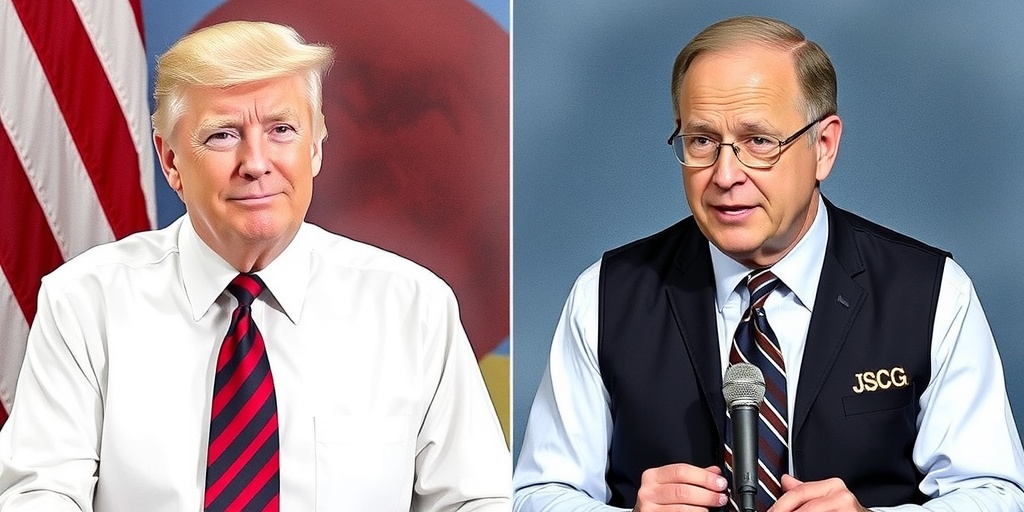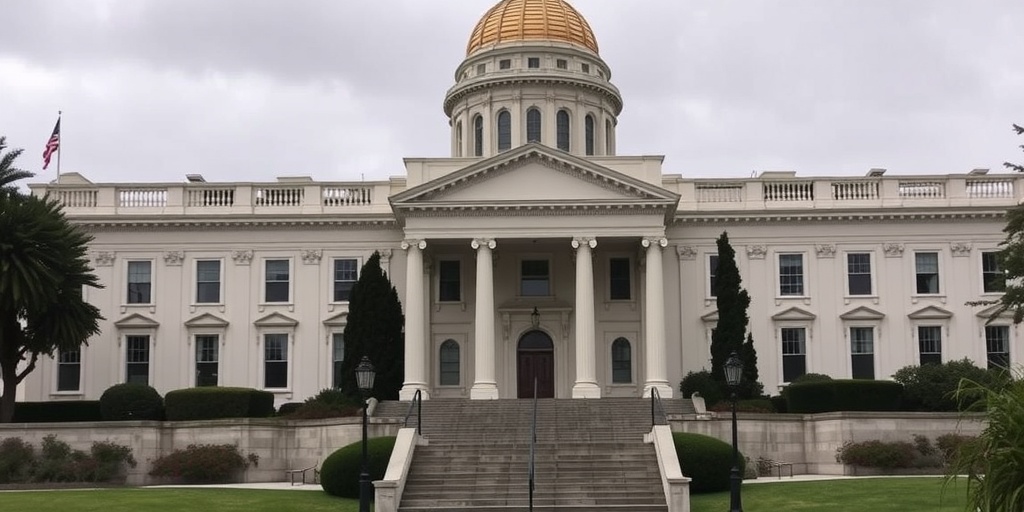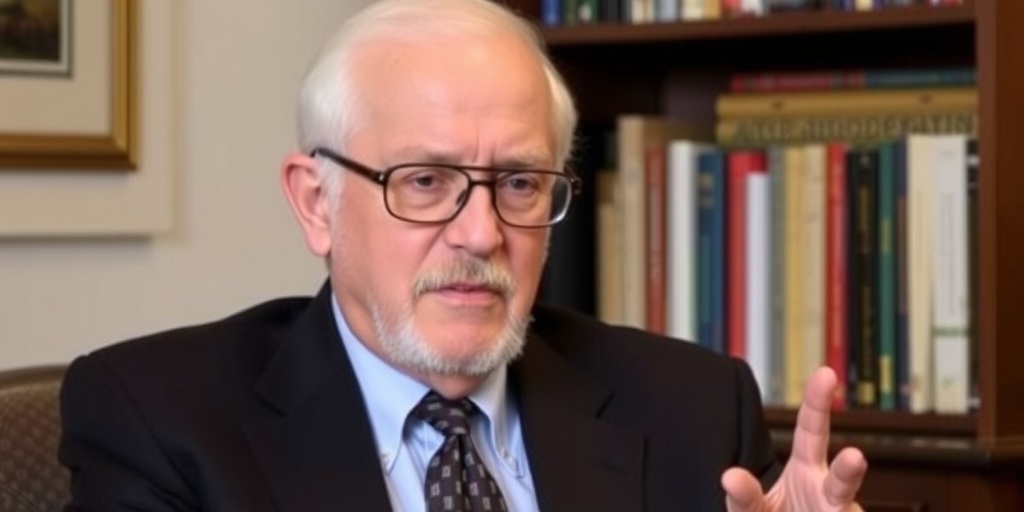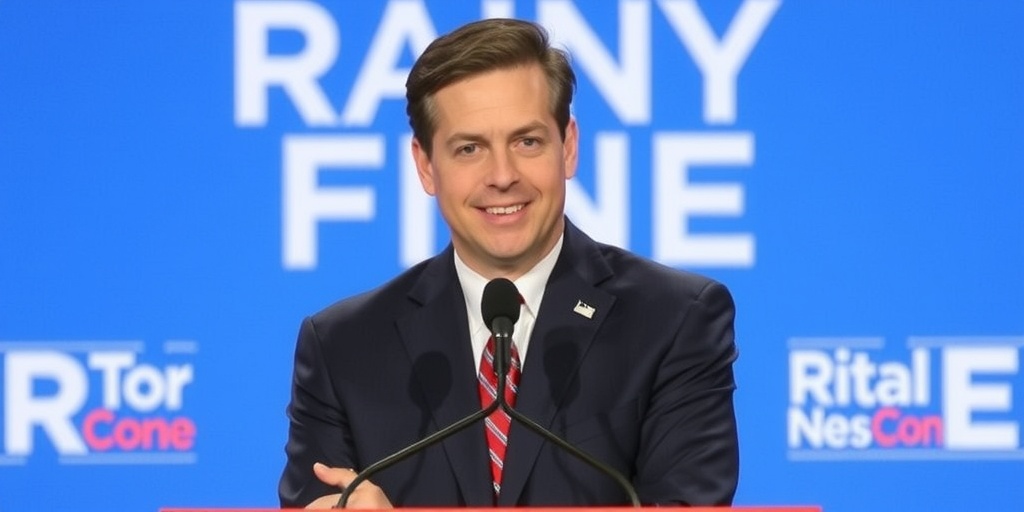Now Reading: Trump-Linked Prosecutor Aims to Challenge Biden’s Pardons
-
01
Trump-Linked Prosecutor Aims to Challenge Biden’s Pardons
Trump-Linked Prosecutor Aims to Challenge Biden’s Pardons

Inquiry Into Biden’s Pardons Raises Questions on Presidential Competence
Ed Martin, the interim U.S. attorney for Washington and a dedicated supporter of former President Donald Trump, is advancing an inquiry that questions the mental competency of President Joe Biden during the issuance of pardons in the final days of his administration. This investigation seeks to explore whether Biden was fit to grant clemency to family members and associates, a process that has traditionally gone undisputed.
The essence of the inquiry stems from a conspiracy theory promoted by Trump and his supporters, which suggests that the pardons issued by Biden are invalid due to alleged mental incompetence. This notion has been further fueled by an unverified claim that Biden’s signature on official documents might have been applied using an autopen—a mechanical device for signature replication—without Biden’s knowledge.
Over the past two months, Martin has begun contacting individuals associated with Biden’s administration, including former White House Chief of Staff Jeffrey D. Zients, as well as the recipients of the pardons themselves. Letters from Martin have informally questioned the validity of Biden’s presidential clemency powers, targeting not only Biden but also his family, including his brother James Biden and sister-in-law Sara Biden.
Experts in the field of clemency have largely dismissed the validity of Martin’s inquiries. They note that any attempts to prosecute those who received pardons based on competency issues are unlikely to hold up in a court of law. Frank O. Bowman III, a law professor at the University of Missouri, expressed skepticism about Martin’s motivations, emphasizing that the effort seems designed to intimidate individuals granted clemency, rather than resulting in substantive legal action.
Moreover, the nature of the letters sent by Martin gives an impression of intimidation rather than genuine legal inquiry. While they are classified as voluntary requests and not formal subpoenas, the letters imply that more serious investigative measures could follow depending on their findings. Their informal tone contrasts sharply with typical communications from U.S. attorneys, suggesting a politically motivated agenda rather than impartial law enforcement.
In conjunction with the pardons issue, Martin has also targeted other Democrats, suggesting potential wrongdoing unrelated to the pardons. There have been letters sent to Democratic officials like Representative Robert Garcia and Senator Chuck Schumer, implying that certain comments made in the political realm could amount to prosecutable threats. Despite these inquiries, there is currently no evidence that they have proceeded to any significant legal actions.
In January, the political landscape shifted as Trump endorsed Martin for the permanent role of U.S. attorney, claiming that Martin was effectively restoring "Law and Order.” However, Martin’s actions and the ensuing backlash from congressional Democrats have sparked calls for an investigation into his conduct. Senator Adam Schiff recently announced efforts to prevent a Senate vote on Martin’s nomination, highlighting the contentious atmosphere surrounding his role.
As the inquiries progress, it’s pertinent to note the broader implications of questioning the legitimacy of presidential pardons. Biden’s decisions regarding pardons, especially involving controversial figures like his son Hunter Biden, have been described by critics as politically charged. While some legal experts express concern over the preemptive nature of these pardons in light of potential prosecutions by a future administration, others suggest that the inquiries led by Martin are more reflective of Trump’s push for political retribution.
Clemency experts have emphasized that even proving Biden utilized an autopen wouldn’t suffice to invalidate the pardons, as using such mechanisms has historically been common among various administrations. Legal professionals stress that the scrutiny surrounding the mental capacity of a sitting president in issuing pardons could set a dangerous precedent, opening a Pandora’s box in the realm of executive power and discretion.
The inquiry into Biden’s pardons represents a significant crossroads in U.S. political and legal discourse, challenging the sanctity of presidential authority while also underlining the increasingly polarized environment. As this saga unfolds, it raises critical questions about the balance between political accountability and the rules governing executive power in pardoning offenses. The implications for future administrations and the legacy of the pardoning power loom large as this inquiry continues to develop.
Stay Informed With the Latest & Most Important News
Previous Post
Next Post
-
 01New technology breakthrough has everyone talking right now
01New technology breakthrough has everyone talking right now -
 02Unbelievable life hack everyone needs to try today
02Unbelievable life hack everyone needs to try today -
 03Fascinating discovery found buried deep beneath the ocean
03Fascinating discovery found buried deep beneath the ocean -
 04Man invents genius device that solves everyday problems
04Man invents genius device that solves everyday problems -
 05Shocking discovery that changes what we know forever
05Shocking discovery that changes what we know forever -
 06Internet goes wild over celebrity’s unexpected fashion choice
06Internet goes wild over celebrity’s unexpected fashion choice -
 07Rare animal sighting stuns scientists and wildlife lovers
07Rare animal sighting stuns scientists and wildlife lovers





















